Meet the Women Behind the Music
These six female execs are turning the music business on its head.
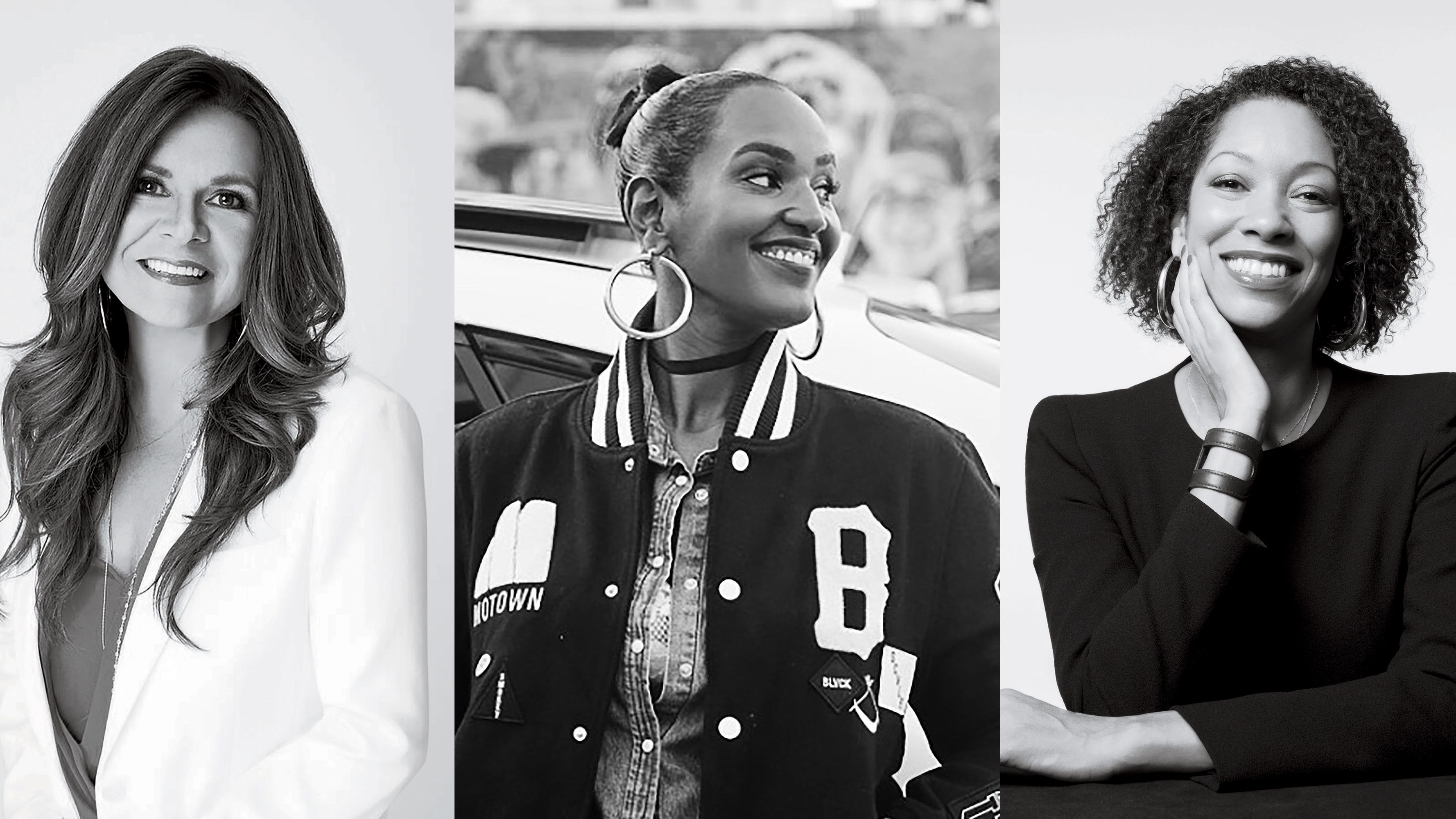

In February, 21 female execs signed a letter calling for the resignation of Grammy's chief Neil Portnow after he told women in the industry to "step up." Five weeks later, the Recording Academy named Time's Up confounder Tina Tchen chair of its newly formed task force to tackle diversity. Is this the end of the Boys' Club in music? The answer is maybe. Meet six leaders raring to turn that maybe into a yes.
Ethiopia Habtemaria, President, Motown Records

Ethiopia Habtemariam started working in the music industry when she was 14.
Lauryn Hill, Aaliyah, Janet Jackson, TLC, Missy Elliott: We all idolized the strong female artists of the 1990s. Ethiopia Habtemariam was no different. “You looked up to them. You wanted them to be like your sister,” she recalls. “To me, these females represented all that you could be.” Unlike many teens, though, Habtemariam wasn’t content sitting in her Atlanta bedroom staring at TigerBeat posters of the stars. She wanted to work for the music industry, and the dream couldn’t wait.
When she was 14, Habtemariam connected with an alumna of her high school who was working at LaFace Records and asked to shadow her. “She came to my house and met my parents. They were like, ‘All right, as long as you keep your grades up, you can go do this shadow exercise at the office,’ ” Habtemariam says. She started working at the label’s production and promotions departments after school and throughout the summers and was hired full-time when she graduated high school. At 21, she joined Edmonds Music Publishing—“I was basically a song plugger,” a person who pitches songwriters’ work to artists, she says—and shortly after, she placed a client’s song on NSYNC’s final album. In 2003, Universal Music Publishing Group took notice and hired her; she signed Justin Bieber, J. Cole, Ludacris, Ciara, and more—and in 2014, she was handed the reins to Motown Records, the iconic label that introduced the Jackson 5, the Supremes, and Stevie Wonder to the mainstream. “There’s such a legacy and so much history there,” Habtemariam says. “My role was not to carry the heaviness of that. To do something that was fresh. To do dope shit, period.” A few of her big wins: Habtemariam signed BJ the Chicago Kid in 2015, and his Motown-produced album was nominated for three Grammys in 2016. That same year, she signed Migos and Lil Yachty.
What does Habtemariam have to say about sexism in the industry? “I’ve been in some uncomfortable positions, but I was pretty intuitive and found ways to protect myself and make sure people respected me,” she says, adding that she owes her rapid professional ascension to “putting my head down and doing a lot of fucking work. Then you look up and all this stuff happened. You don’t even realize all this time went by.”
Jennifer Justice, President of Corporate Development, Superfly
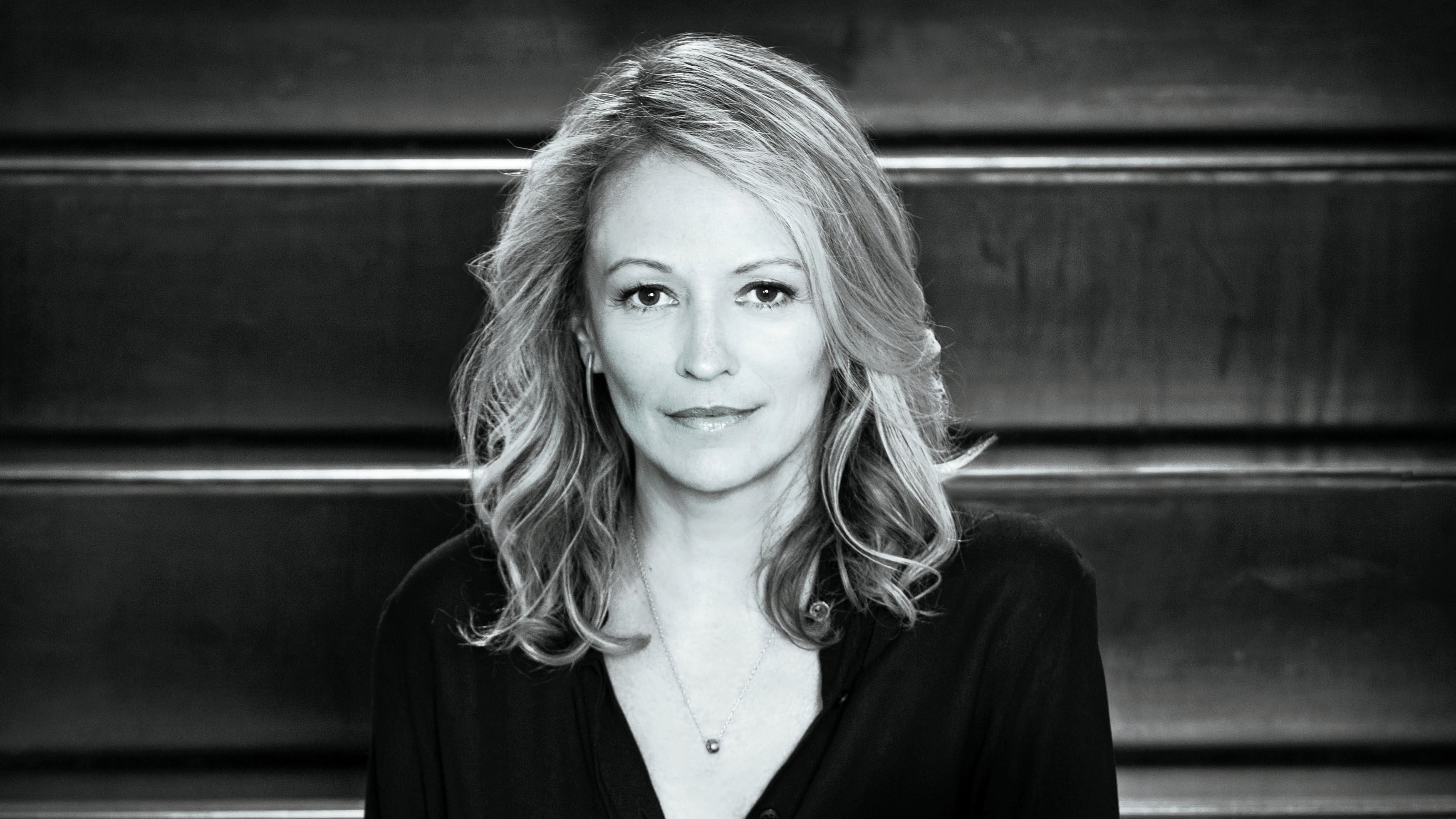
Jennifer Justice advises USC’s Annenberg Inclusion Initiative.
While interviewing for an associate position at entertainment law firm Carroll, Guido & Groffman in the ’90s, Jennifer Justice got a rundown of its artist roster. “They said, ‘We have Marilyn Manson, Sinead O’Connor, Blues Traveler, and Dave Matthews Band. Oh, and this hip-hop artist, Jay-Z, very promising,’ ” she remembers. “I was like, ‘Oh, I loved his first album, Reasonable Doubt!’ And they were like, ‘Wait, what? How do you know who he is?’” Justice was assigned to Jay-Z, serving as his personal attorney for 17 years, and as general counsel, then executive vice president of strategic marketing and business development at Roc Nation for nearly seven. She oversaw everything Jay-Z signed, from record to publishing to fashion to merchandise deals. Her time building Jay-Z’s empire paved her path to event production company Superfly, where she pursues growth opportunities and most recently led the deals that formed three new festivals: Clusterfest, Lost Lake, and Grandoozy. (Justice first met the Superfly team in 2010, when Jay-Z headlined Bonnaroo, and joined as president of corporate development in 2016.)
After two decades in the business, Justice is adamant about creating more opportunities for women. “When you’re one of the only women in the room, you almost become part of the problem. You play along and act like one of the boys,” she says. “The older I got, the more I saw women not getting paid the same as men, or not being added to the top. It was not right.” She sits on the advisory board of the University of Southern California’s Annenberg Inclusion Initiative, which also includes women working in Hollywood. Justice says the film industry’s #MeToo movement is progressing more quickly than music’s because “there are different companies behind record deals, publishing deals, radio, and live entertainment. They’re all very male-dominated. So the record and the publishing companies may say to a female artist who speaks up, ‘We’re going to protect you.’ But that doesn’t mean that the radio and the live teams feel the same way. It’s going to take men to really care [about #MeToo] to create change,” she explains. “People don’t want to talk about bad behavior because they’re scared of retaliation.” Justice isn’t, and that means her work is just beginning.
Caron Veazey, Cofounder, I Am Other
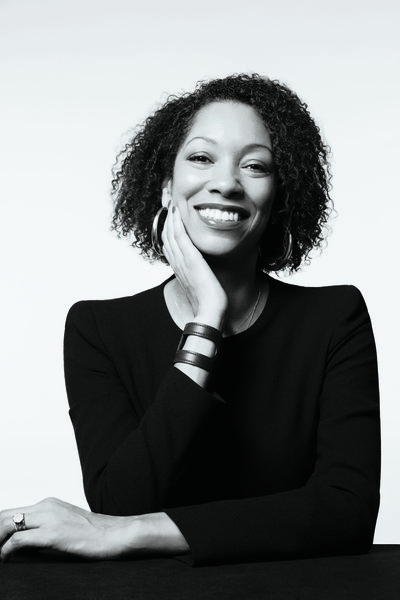
Since Caron Veazey began working with Pharrell, he has been nominated for 21 Grammys.
Imagine you’re at the top of your professional game and you get a call from superstar producer Pharrell, who begs you to quit your job to work for him. Then imagine saying no. It took a little begging on the hitmaker’s part before Caron Veazey, at the time a vice president of global marketing at Sony Music, agreed to helphim launch a new venture, I Am Other. The company is a creative collective and consultancy that encompasses projects in film, music, art, fashion, and more; Veazey keeps the wheels turning and serves as Pharrell’s manager with her partner, Ron Laffitte. “It wasn’t so much a jump into management as a shift to working with this brilliant guy,” Veazey says. Since that leap seven years ago, Since Caron Veazey began working with Pharrell, he has been nominated for 21 Grammys Pharrell has racked up 21 Grammy nominations, including wins for Producer of the Year and Record of the Year in 2014.
Get exclusive access to fashion and beauty trends, hot-off-the-press celebrity news, and more.
"Step up?! That's what we do every single day. How dare you demean us."
The success has affirmed Veazey’s place as a heavy hitter in the industry; along with 20 of her peers (including Justice, Stiklorius, and Taylor), she cosigned the letter this past winter demanding the resignation of Grammys head Neil Portnow after he suggested women need to “step up” if they want more award recognition. (In the last five years, 91 percent of Grammy nominations have gone to men.) “It triggered so much emotion, because it’s like, ‘Step up’?! That is what so many of us do every single day,” she says. “How dare you demean us in this way.” It’s one of the many reasons she’s happy to be working with Pharrell, whom she calls one of the biggest feminists she knows. “We ultimately want the same thing, to put goodwill into the world through our projects,” she says. “That’s the number-one goal.”
Lou Taylor, CEO, Tri Star Sports & Entertainment Group
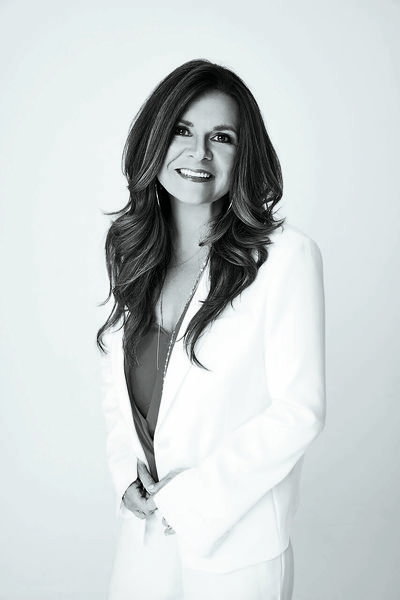
Of Lou Taylor’s employees, 78 percent are women.
“When you have as much responsibility as I do, you don’t have time for bullshit,” says Lou Taylor, a woman allergic to mincing words. In the 25 years since she launched Tri Star—at just 28, with two baseball stars and one boxing heavyweight— Taylor has managed the business side of the careers of artists including Gwen Stefani, Jennifer Lopez, Mary J. Blige, and Britney Spears, as well as athletes, directors, and writers. She runs a team of 90 in two cities, Los Angeles and Nashville, and 70 of those employees are women. Taylor says her female-heavy workforce isn’t about leveling the playing field; it’s because women make for better artist managers. Male talent often prefers working with a woman business manager because “moms were the people that you trusted for measured discipline,” Taylor explains. “When you talk about unpacking skill sets inside of a business-management firm, I find that women give a more well-rounded, 360 degree contribution,” she says.
Taylor is quick to name three powerful male mentors—WME co-CEO Patrick Whitesell, music attorney Aaron Rosenberg, and Live Nation CEO Michael Rapino—who have not “disparaged me or talked to me as anything other than a business partner.” Still, sexism snakes its way into Taylor’s daily dealings. The week she spoke with Marie Claire, she was chastised by a male business manager when he felt she “had a tone with him” during a conference call. “He said, ‘Let’s face it, you’re a strong personality,’ ” Taylor says. “My response to him was, ‘I’m a strong personality? OK, well, I run businesses on two coasts with close to 100 staffers and 89 highprofile clients, plus their trusted advisers. I would call that competent.’”
Ty Stiklorious, Founder and CEO, Friends at Work
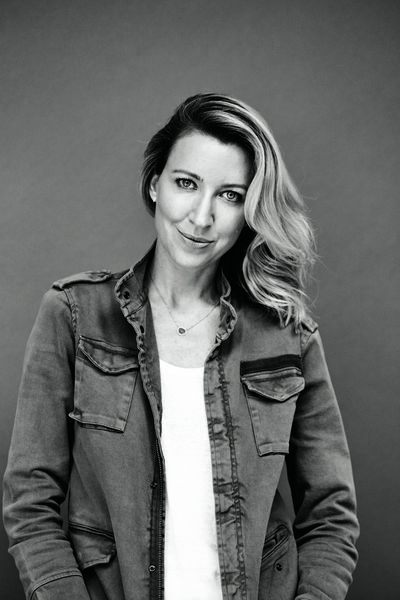
A near-death experience steered Ty Stiklorius back to music from consulting.
Growing up in Philadelphia, Ty Stiklorius was always singing. “When I was a kid, my dad took me to jazz clubs,” she says. “In high school, it was choir and musicals. At the University of Pennsylvania, I joined an a cappella group called Counterparts.” Stiklorius got her MBA from Wharton—where she wrote her thesis on the future of the music industry—in 2003. The streaming world didn’t repel her; it thrilled her, so much so that she named her cat Napster. “I thought, I’m young, innovative, a musician. Hire me! I’ll fix the music business!” she says. “If I’m really honest, every guy [in the industry] I met who I gave my résumé to was all like, ‘Yeah, no. Here’s my key card. Meet me for dinner. Come up to my hotel room.’ I would say no, and I wondered, How on earth am I ever going to get into this business?”
Disheartened, Stiklorius paused her dreams and went into consulting in L.A. until a near plane crash in 2005 caused her to reevaluate her life. At 27,000 feet, there was a loud pop, wind hit her face as the cabin depressurized, and oxygen masks dropped from the ceiling. The plane landed, but Stiklorius “prayed to whatever god I was praying to at that time and promised I would do what I care about in life.” She quit her job that week and called her old college a cappella pal John Legend, who was based in New York at the time. “John said, ‘Why don’t you come out, and let’s think about what we could maybe do together,’” she remembers. “For a couple of days, we mapped out, what could John Legend’s 10-year career arc look like? On the whiteboard, we wrote things like: start a film and TV production company; solve massive problems in the world; create movements; be on Time magazine’s 100 Most Influential People list, because the work we’ll do will change the world.” Stiklorius has been guiding her friend’s career ever since, and, in 2015, she launched her own management company, Friends at Work. Its eight-plus clients, including Legend, are as focused on issues like criminal justice and education reform, mental health, empowering women, and fighting for LGBTQ rights as they are on music. “Storytelling is the tool that can crack people’s hearts open,” Stiklorius says. And if that makes them care about whom they’re voting for as their district attorney, she adds, then they’ve really done something special.
"We need to name and shame the people who've been sexually harassing women throughout their careers"
Stiklorius’s focus on impact doesn’t end with her clients. “We need to name and shame bad-actors, like the Charlie Walks and the L.A. Reids, the people who’ve been sexually harassing women throughout their careers. I’m not afraid to do that,” she says. That’s step one to kick-starting music’s #MeToo moment. Step two? “I want to see a generation of women take over the music business. That would be a dream come true.”
Michelle Jubelirer, Chief Operating Officer, Capitol Music Group
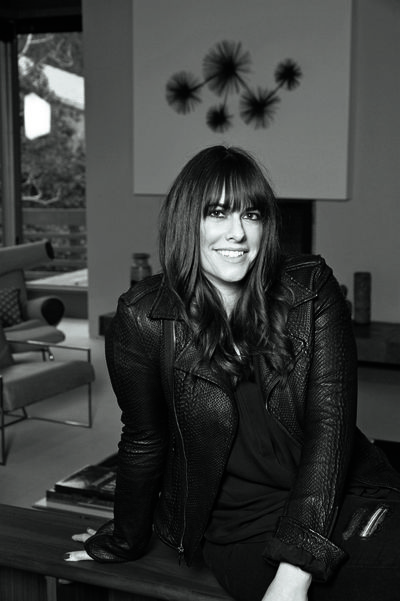
An early childhood loss spurred Michelle Jubelirer to dream big.
“Women have to be in power positions. That’s how change often happens— from the top down,” says Michelle Jubelirer, her tone emphatic. The COO of Capitol Music Group, where she oversees the recording projects of Katy Perry and Halsey, as well as legends like Paul McCartney and Brian Wilson, has been working toward a power position with laser focus since she was in diapers. “My father died when I was 3, and so I knew I had to find a way to support myself and not rely on a man financially,” says Jubelirer. She attended law school, then logged four years at giant mergers and acquisitions firm Simpson, Thacher & Bartlett to pay off her loans. Only when she was debt-free did she join Sony Music’s legal department, and then esteemed entertainment law firm King, Holmes, Paterno and Berliner, to represent musicians. (Her clients included Kesha, Frank Ocean, and M.I.A.) “I was one of those rare individuals who had a plan all along the way and tried to meticulously stick to it,” Jubelirer says. She was such a “pain in the ass” lawyer for her artists that she caught the attention of Steve Barnett, then the cochairman and COO at Columbia Records, who was on his way to becoming the chairman and CEO of Capitol Music Group. “He basically asked me if I would be his right hand because he thought I had ambitions far beyond being a partner in a law firm,” she says of her appointment as Capitol’s EVP in 2013 and her subsequent promotion to COO in 2015.
Like many in the industry, Jubelirer has seen her fair share of misbehavior— and her title has given her access to conversations on how to create change. Jubelirer’s theory as to why the music industry hasn’t caught up to Hollywood? “Music’s #MeToo movement has to be led by talent. There are people who have worked at record companies and worked for various songwriters who have spoken out, but the press just cares about big names. That said, it’s very different for musicians. Actresses play a role. If fans don’t like a particular actress as a human being, they won’t stop watching the television shows she’s in. Musicians are themselves; if the general public is insulted by something a musician said, they may become alienated and walk away from and stop buying that musician’s music. It’s way riskier for a big-name musician to speak.”
Yet Jubelirer remains in awe of the magic her career allows. “I still remember the time my old client Frank Ocean played Channel Orange alone for me in the studio. I started crying, because it reminded me why I do what I do for a living,” says Jubelirer. “Sometimes shit is super hard. You need to be reminded of why you’re putting in the time and energy.”
This article originally appeared in the June 2018 issue of Marie Claire, on newsstands now.
